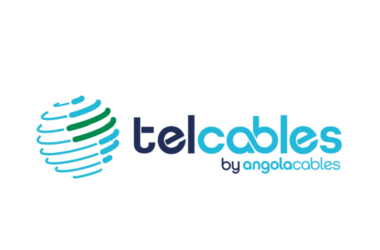Governments in most developing countries are failing to take the action needed to provide affordable internet access to their citizens. This is the sobering conclusion of the 2017 Affordability Report from the Alliance for Affordable Internet (A4AI), which warns that continued failure to prioritise needed policy reforms — including public access solutions vital to connecting women and the poor — risks further entrenching the digital divide and widening global inequality.
Based on original research across 58 low- and middle-income countries, the report finds that:
-
Internet access remains unaffordable in the vast majority of countries surveyed. Only 19 countries have internet that is affordable (i.e., 1GB of mobile data is priced at 2% or less of average monthly income) for the majority of their populations.
-
Countries are not prioritising public access solutions. Schemes to provide free or subsidised internet access in public places are critical to enabling connectivity for those that cannot afford to pay for data, yet effective and funded schemes exist in only half the countries surveyed.
-
Official plans to bridge the digital divide are often not fit for purpose or non-existent. National broadband plans have never been developed or are badly outdated in 41% of countries.
-
Policies have barely changed since 2014. A4AI’s experts have been tracking and rating policies in five key areas across developing and emerging countries since 2014. Overall, the average increase in policy scores across all areas was only 10%, indicating the slow pace of policy and regulatory progress.
-
Public funds to expand access are underutilised — where they exist. Universal Service and Access Funds — designed to extend connectivity to those who cannot afford access or who live in areas without needed infrastructure — either don’t exist or are dormant — in over a third of countries.
Commenting on the report’s findings, Omobola Johnson, Honorary Chair of A4AI, and immediate former communications minister of Nigeria, said:
“Though the global community committed to achieving affordable, universal internet access by the year 2020, policymakers worldwide are failing to turn their words into action. The billions still offline today — mostly women in developing countries — arguably stand the most to gain from an internet connection, yet inability to access an affordable connection risks contributing to their further marginalisation in society as the digital revolution steams ahead. Basic policy reforms have the power to reduce prices and unlock access for all. We urge policymakers to recognise the power of the internet to fuel development, and to prioritise, among other things, the creation of time-bound and targeted broadband plans, policies to promote healthy competition, and frameworks to encourage resource and infrastructure sharing among telecoms operators.”
The report does highlight some bright spots of progress that other countries can learn from: Latin American countries rank among the highest in the report’s Affordability Drivers Index, which assesses how likely countries are to be able to drive prices down based on an in-depth analysis of the affordability policy and regulatory environments they have in place.
Snapshot of the 2017 Affordability Drivers Index (ADI) rankings:
|
Overall ADI Rankings Top 5 |
Biggest Ranking Improvements in 2017 |
|
Colombia (1) |
Jordan (+13 spots) |
|
Mexico (2) |
Benin (+9) |
|
Peru (3) |
Ecuador (+9) |
|
Malaysia (4) |
Botswana (+8) |
|
Costa Rica (5) |
Vietnam (+8) |
A4AI Executive Director Sonia Jorge added:
“While we are disappointed by the extremely slow policy progress we’ve seen over this past year, we are heartened by the emergence of new public access solutions to connectivity challenges. Public access — or the offering of free, lower-cost, or subsidised internet access in public places — offers an untapped opportunity to connect those that cannot pay for regular internet use, even once prices have dropped to a more affordable level. New programmes in a number of countries, including Colombia, Costa Rica and Botswana, offer promising approaches to connecting those at the base of the pyramid. Public access has the potential to make a big dent in internet access and use levels, and requires leadership and focus from policymakers as they seek to achieve the Sustainable Development Goals.”
As an Amazon Associate, TechCity may earn a small commission if you shop these products.
















